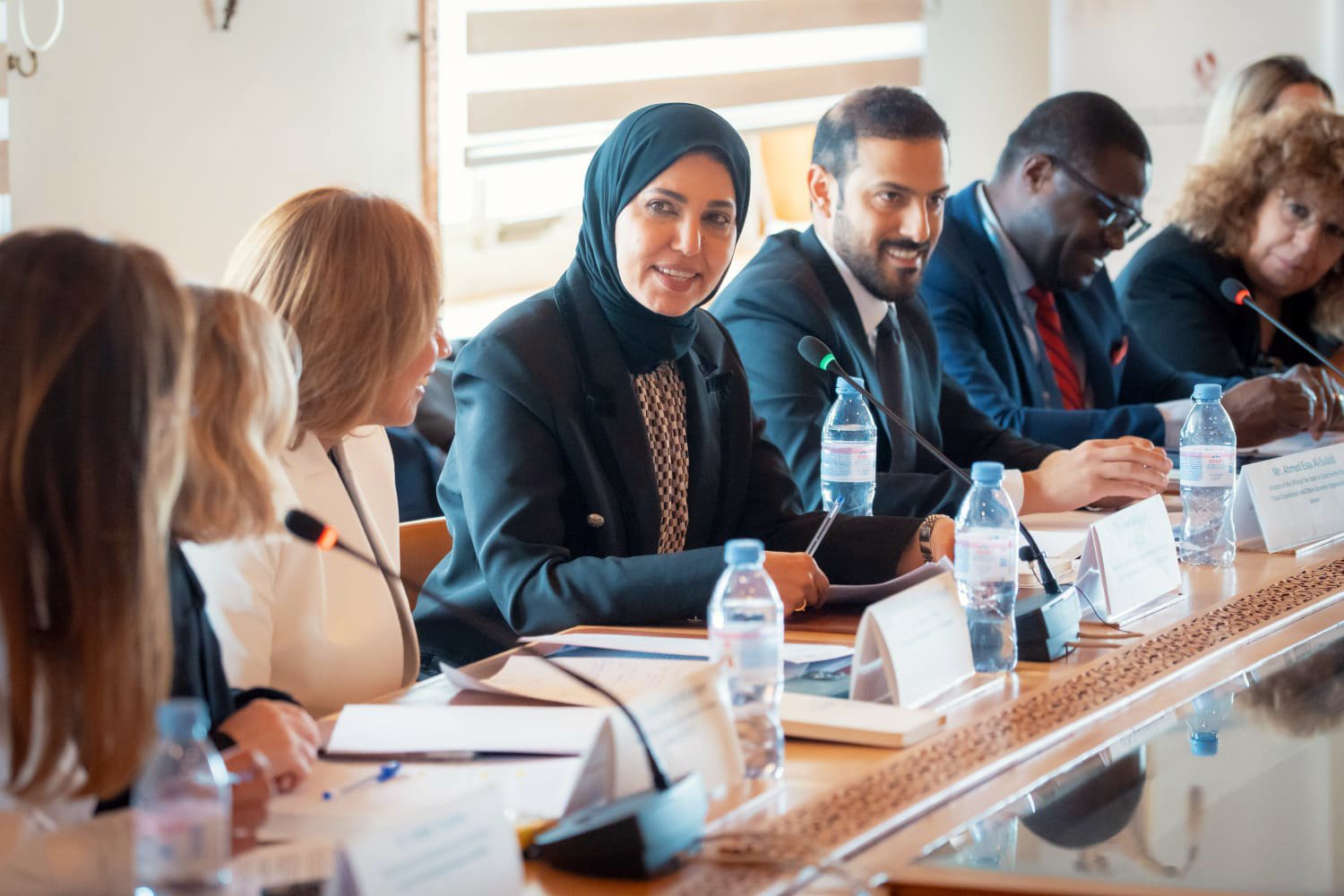Qatar's Permanent Representative in Geneva Participates in High-Level Dialogue on Justice, Capacity-Building in International Law

Geneva, May 08
HE Permanent Representative of the State of Qatar in Geneva Dr. Hend bint Abdulrahman Al Muftah emphasized Thursday that the State of Qatar considers international law the bedrock of its foreign policy and a means to achieve peaceful coexistence among states, based on its National Vision 2030, which places justice, the rule of law, and sustainable development at the core of its strategies.
In a speech during her participation in a High-Level Dialogue on Justice and Capacity-Building in International Law, organized by the Permanent Mission of the State of Qatar to Geneva and the United Nations Institute for Training and Research (UNITAR) at the United Nations Office at Geneva, Her Excellency indicated that the organization of this dialogue comes at a time of growing geopolitical complexities and declining confidence in multilateral institutions, which calls for reimagining the role of international law to become more responsive to the demands of justice and international solidarity.
Her Excellency pointed out that these principles are not merely slogans, but rather firm commitments, evident in the active role played by the State of Qatar in hosting international dialogues in the context of mediation and conflict resolution, supporting international legal education, and providing legal protection to refugees and displaced persons. She emphasized that, for Qatar, international law is a tool for achieving a just and comprehensive peace.
HE the Permanent Representative of the State of Qatar to Geneva highlighted the importance of empowering youth, particularly in countries of the Global South, and equipping them with the legal knowledge and diplomatic skills to effectively participate in the international legal system. In this context, she pointed to effective Qatari initiatives such as the Education Above All Foundation's "Protecting Education in Conflict Zones" program, Silatech's projects, and the Qatar Fund for Development's investments.
HE Dr. Hend bint Abdulrahman Al Muftah stressed that capacity building in international law is a vital issue directly linked to the national sovereignty and strategic independence of the State of Qatar. She emphasized that possessing advanced legal expertise enables the state to effectively defend its interests and contribute to the development of international legal norms, especially in light of the complexity of contemporary issues such as cybersecurity, climate change, and human rights.
Her Excellency also addressed the distinguished partnership between the State of Qatar and the UNITAR, noting Qatar's participation in the "World Negotiation Day 2024" event during the Doha Forum, which highlighted the ethical dimension of negotiation as a responsibility based on empathy and mutual respect. She also noted Qatar's readiness to organize two regional conferences in Doha this year, reflecting its commitment to strengthening international legal dialogue. The first, in cooperation with the World Intellectual Property Organization (WIPO), will address the role of international law in supporting innovation, alternative dispute resolution, and attracting sustainable investment. The second, in partnership with the United Nations Conference on Trade and Development (UNCTAD), will discuss legal frameworks for investment from a more comprehensive, just, and sustainable perspective.
Her Excellency underscored that these initiatives, dialogues, and efforts are not merely political dialogues, but rather a clear expression of the State of Qatar's deep belief that international law must evolve to serve future generations, noting that its USD 60 million contribution to the implementation of the Doha Program of Action for the Least Developed Countries (2022–2031) reflects its commitment to justice and legal empowerment.
HE Permanent Representative of the State of Qatar in Genevaآ Dr. Hend bint Abdulrahman Al Muftah pointed out that capacity building in international law is not merely a technical or institutional endeavor, but rather a moral endeavor and a form of shared creativity. She called for courageous interaction, generous cooperation, and determined action toward a more just and inclusive international legal system that respects the voice of every state and embraces the future of every people.

